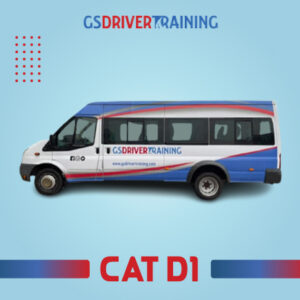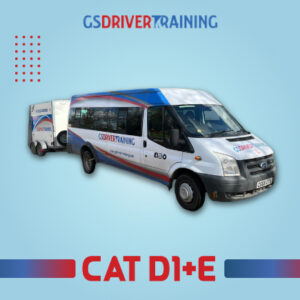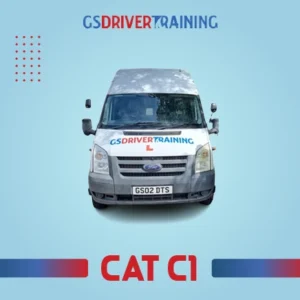Discover HGV Training in Cornwall: Your Path to Professional Driving

Understanding Licence Categories
HGV training in Cornwall encompasses various licence categories, including Category C1 for medium-sized vehicles and Category C for larger lorries.
Depending on your career goals, select the appropriate category. If you aim to drive articulated lorries, Category C+E training is essential.
Tapping into Cornwall's Economy
Cornwall's economy relies on the efficient movement of goods and services. Explore opportunities in sectors like agriculture, tourism, and manufacturing. Networking with local businesses and logistics companies can open doors to potential employers.
Staying Informed About Industry Trends
The transportation industry is dynamic, with constant technological advancements and regulatory changes. Stay informed about industry trends to remain a knowledgeable and competitive HGV driver. Continuous learning and adaptation are critical to long-term success.
Navigating the Training Process
The HGV training process involves both theoretical and practical components. Theoretical aspects cover road safety, regulations, and vehicle maintenance, while practical training ensures you're proficient behind the wheel. Be prepared for assessments conducted by the Driver and Vehicle Standards Agency (DVSA).
Expanding Your Skill Set
Cornwall's roads demand skilled and adaptable drivers. Consider additional certifications, such as the Driver Certificate of Professional Competence (CPC), to enhance your employability. CPC training covers essential topics like driver well-being, road safety, and compliance.
Identifying Your Career Path
Before diving into HGV training, it's essential to identify your career goals. Cornwall's diverse economy offers opportunities in logistics, construction, and transportation. Whether you aspire to drive rigid lorries or articulated trucks or specialise in specific industries, understanding your career path guides your training choices. commercial driving licence
Celebrating Milestones
Completing HGV training in Cornwall is a significant milestone. Celebrate your achievements, pass the required assessments, and proudly obtain your HGV licence. Your journey from trainee to qualified HGV driver is a testament to your dedication and commitment.
Choosing the Right Training Program
Mastering CPC Training in Cornwall: A Comprehensive Guide
If you aspire to be a professional driver in Cornwall, mastering the Driver Certificate of Professional Competence (CPC) is a crucial step in your journey. The CPC is a legal requirement for professional bus, coach, and lorry drivers, ensuring they maintain high standards of driving and road safety.Here’s a comprehensive guide to mastering CPC training in Cornwall.
Understanding CPC Basics
The CPC consists of the Driver CPC (Initial Qualification) and the Driver CPC (Periodic Training). The Initial Qualification involves passing four modules: two theory tests (multiple-choice and hazard perception) and two practical tests (case studies and driving ability).
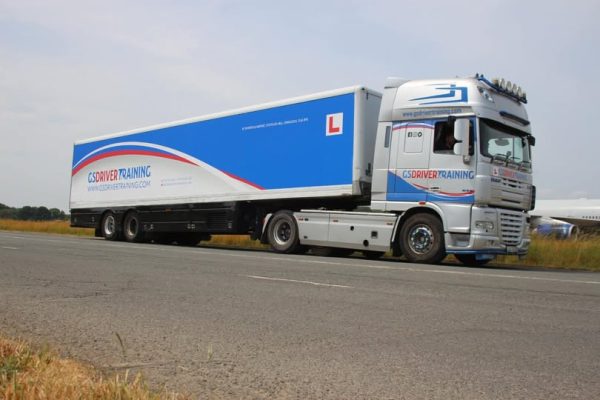
1. Choosing a Reputable Training Provider
- Cornwall offers various CPC training providers, but choosing one that aligns with your learning preferences and schedule is crucial. Look for providers with experienced instructors, positive reviews, and accreditation. Verify that the training is approved by the Driver and Vehicle Standards Agency (DVSA).
2. Preparing for the Initial Qualification
- The initial qualification process includes theoretical and practical assessments. Use official DVSA study materials to prepare for the theory tests. The case studies test your ability to apply CPC knowledge in real-world scenarios. Practical driving tests assess your on-road skills.
3. Periodic Training Requirements
- Once you obtain the Initial Qualification, you must complete 35 hours of periodic training every five years to maintain your CPC. Periodic training covers various topics, including driver well-being, road safety, and legal responsibilities. Choose relevant and engaging courses to enhance your knowledge.
4. Planning Your Training Schedule
- Consider your schedule and plan your CPC training accordingly. Whether you opt for intensive courses or spread the training over a more extended period, ensure it aligns with your commitments. Many drivers choose to complete periodic training incrementally to meet the 35-hour requirement.
5. Staying Updated on Industry Changes
- The transport industry is subject to regulatory changes and advancements. Stay informed about any updates to CPC requirements, driving standards, or industry practices. Being aware of changes ensures you remain a compliant and knowledgeable professional.
6. Taking Advantage of Resources
- Leverage digital platforms, blogs, and reputable websites for additional CPC resources. Stay engaged with industry forums and discussions to gain insights into the experiences of other drivers in Cornwall. Sharing knowledge can enhance your understanding of CPC requirements.
7. Navigating Cornwall's Roads with Confidence
Cornwall’s diverse landscapes and roads demand skilled and confident drivers. As you master CPC training, apply the principles learned to real-world driving situations—your competency as a CPC-certified driver contributes to road safety and professional standards in Cornwall.
Mastering CPC training in Cornwall is not just a legal obligation but a commitment to excellence in professional driving. By following this guide, you’ll confidently navigate the CPC training process, ensuring you’re well-equipped to meet the standards expected of a professional driver in Cornwall. Safe travels on your CPC training journey!

D1 Training in Cornwall: A Guide to Driving Minibuses with Confidence
Theoretical and Practical Training
D1 training involves both theoretical and practical components. Theoretical training covers vehicle safety, passenger care, and legal responsibilities. Practical training ensures you are confident in a minibus capable of handling various driving scenarios.
Choosing an Approved Training Provider
Cornwall offers various training providers for D1 licences. Selecting one approved and recognised by the Driver and Vehicle Standards Agency (DVSA) is crucial. Check for accreditation, experienced instructors, and positive reviews when choosing.
Meeting Eligibility Requirements
Before enrolling in D1 training, ensure you meet the eligibility criteria. You must be at least 21 years old and hold a full car driving licence. Some providers may have additional requirements, so verify these before training.
Understanding the D1 Licence
The D1 licence is specifically for driving minibuses. It is essential if you plan to transport passengers for purposes such as private hire, community transport, or as part of an organisation. The licence requires specific training and testing to meet the necessary standards.
Preparing for the DVSA Test
The DVSA conducts tests to assess your theoretical and practical skills for the D1 licence. Familiarise yourself with the test format, study official DVSA materials, and practice theoretical and practical aspects to increase your chances of success.
Ensuring Vehicle Safety
As a D1 licence holder, you're responsible for the safety of your passengers. Ensure you understand and adhere to all safety regulations and best practices. Regular vehicle maintenance and checks are essential to guarantee the safe operation of the minibus.
Building Confidence on the Road
Cornwall's roads can present various challenges, and driving a minibus requires confidence and skill. Use practical training sessions to build confidence in traffic conditions and road types.
Contributing to Community Transport
With your D1 licence, you can actively contribute to community transport initiatives in Cornwall. Whether driving for a local organisation or providing private hire services, your skills as a D1 licence holder play a crucial role in the transport network.
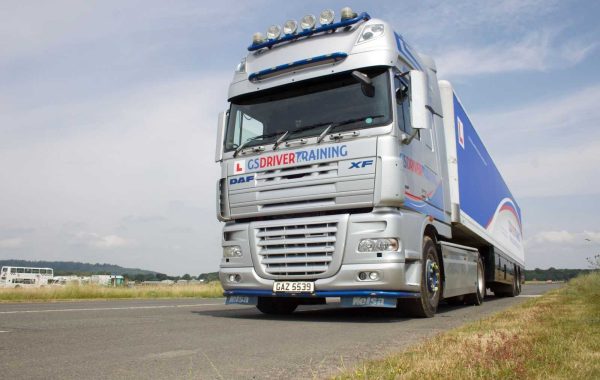
C1 Training in Cornwall: Excel in Driving Medium-Sized Vehicles
If you’re aspiring to drive medium-sized vehicles in Cornwall, obtaining a C1 licence is a crucial step in your journey. This licence allows you to operate vehicles between 3.5 and 7.5 tonnes, opening up opportunities for various roles, including delivery services and emergency response. Here’s a comprehensive guide to C1 training in Cornwall.
Understanding C1 LicenceThe C1 licence is designed for drivers operating vehicles that exceed the weight limit of a standard car but are not classified as Heavy Goods Vehicles (HGVs). This includes ambulances, small lorries, and other medium-sized vehicles. Specific training and testing are required to obtain this licence.
1. Choosing a Reputable Training Provider
- Cornwall offers various CPC training providers, but choosing one that aligns with your learning preferences and schedule is crucial. Look for providers with experienced instructors, positive reviews, and accreditation. Verify that the training is approved by the Driver and Vehicle Standards Agency (DVSA).
2. Preparing for the Initial Qualification
- The initial qualification process includes theoretical and practical assessments. Use official DVSA study materials to prepare for the theory tests. The case studies test your ability to apply CPC knowledge in real-world scenarios. Practical driving tests assess your on-road skills.
3. Periodic Training Requirements
- Once you obtain the Initial Qualification, you must complete 35 hours of periodic training every five years to maintain your CPC. Periodic training covers various topics, including driver well-being, road safety, and legal responsibilities. Choose relevant and engaging courses to enhance your knowledge.
4. Planning Your Training Schedule
- Consider your schedule and plan your CPC training accordingly. Whether you opt for intensive courses or spread the training over a more extended period, ensure it aligns with your commitments. Many drivers choose to complete periodic training incrementally to meet the 35-hour requirement.
5. Staying Updated on Industry Changes
- The transport industry is subject to regulatory changes and advancements. Stay informed about any updates to CPC requirements, driving standards, or industry practices. Being aware of changes ensures you remain a compliant and knowledgeable professional.
6. Taking Advantage of Resources
- Leverage digital platforms, blogs, and reputable websites for additional CPC resources. Stay engaged with industry forums and discussions to gain insights into the experiences of other drivers in Cornwall. Sharing knowledge can enhance your understanding of CPC requirements.
7. Navigating Cornwall's Roads with Confidence
Cornwall’s diverse landscapes and roads demand skilled and confident drivers. As you master CPC training, apply the principles learned to real-world driving situations—your competency as a CPC-certified driver contributes to road safety and professional standards in Cornwall.
Mastering CPC training in Cornwall is not just a legal obligation but a commitment to excellence in professional driving. By following this guide, you’ll confidently navigate the CPC training process, ensuring you’re well-equipped to meet the standards expected of a professional driver in Cornwall. Safe travels on your CPC training journey!
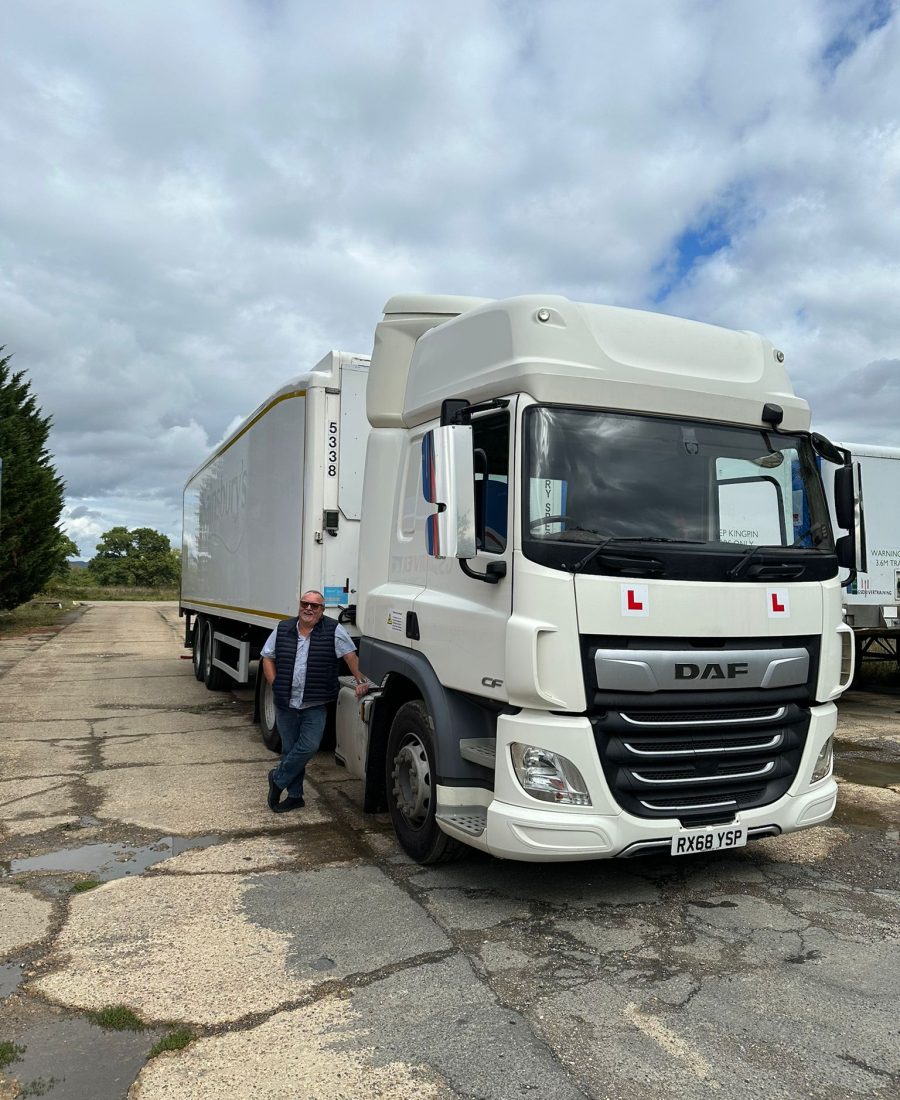
PCV Training in Hampshire
Looking to obtain your bus license? Look no further! We’ve got you covered with various flexible options to suit your needs. Whether you’re a beginner or looking to upgrade your existing license, our comprehensive training programs have been designed to ensure your success. Choose from our various options and get on the road to becoming a skilled and confident bus driver today!
D 14 Hour Course – Book (Cat D)
Unlock your career potential with our 14-hour PCV driving course! Whether you’re on a tight budget or simply looking for quick yet comprehensive training, our specially designed course is your ticket to success. Hop on board our bus and let our expert instructors guide you through the essentials of obtaining your PCV license. With a focus on practical skills and in-depth preparation for the big day, we’ll ensure you’re ready to confidently conquer the challenges ahead. Don’t compromise on quality or affordability – choose our 14-hour PCV driving course and take the first step towards a rewarding career on the road. This course includes the reverse test and the driving test.D 17.5 Hour Course – Book (Cat D)
Ready to hit the road and get your PCV licence in record time? Look no further than our 17.5-hour PCV driving course. Designed specifically for busy individuals like you, this intensive program will equip you with all the skills and knowledge you need to ace your PCV licence test.
Join us in our bus, which has been modified to teach you safely, where our experienced instructors will guide you through every step of the process. From mastering essential driving techniques to understanding the intricacies of PCV regulations, we leave no stone unturned in preparing you for success.
Don’t waste your precious time on lengthy courses that drag on endlessly. Our 17.5-hour course is tailor-made to fast-track your journey towards becoming a licensed PCV driver. So hop aboard and let us pave the way to your professional driving career!

